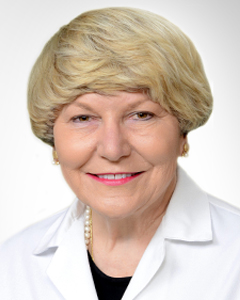How Heart Disease Affects Cancer Survivors
People diagnosed with cancer at a young age may have a higher risk of heart conditions in the future, according to one recent study.
In the study, published in the journal Circulation, researchers reviewed data for more than 200,000 five-year cancer survivors diagnosed between the ages of 15 and 39. The survivors all were diagnosed between 1971 and 2006, and were tracked until 2014. Researchers found that 2,016 participants in the study died from heart disease. For all cancers combined, patients who were diagnosed between the ages of 15 and 19 had the highest mortality rate from heart disease — a four times greater risk of death from cardiac-related conditions compared to the general population. Those diagnosed between 35 and 39 were 1.2 more times likely to die of heart disease compared to the general population.
In terms of the type of cancer, Hodgkin’s lymphoma survivors had the highest mortality rate from heart disease: they were 3.8 times as likely to die. Acute myeloid leukemia, urinary-related cancers other than bladder cancer, non-Hodgkin’s lymphoma, lung cancer, leukemia other than acute myeloid, central nervous system tumor, cervical cancer and breast cancer all had lower mortality rates, with rates between 2.7 and 1.2 times the general population. Researchers found that 30 percent of the excess number of deaths in study participants were Hodgkin’s lymphoma survivors over 60 years old who died because of heart disease.
Overall, seven percent of Hodgkin’s lymphoma survivors diagnosed in their teens died at age 55 compared to 2 percent of those who were diagnosed between ages 35 and 39. It’s unclear why age plays such a significant role in mortality rates for this cancer, so more research will need to be done to more clearly understand the connection.
Cancer Treatment & Heart Disease
This new research is important because survivors of teenage and young adult cancers are understudied. “Little is known about their long-term adverse health risks, particularly of cardiac disease that is increased in other cancer populations where cardiotoxic treatments have been used,” the study’s researchers said.
These cardiotoxic treatments include radiation therapy, which can cause heart attack, heart failure and arrhythmia. Chemotherapy also can damage heart vessels and nearby blood vessels, and lead to issues with blood cholesterol and blood clotting. Still, the effectiveness of these treatments outweighs many of these side effects, especially when you consider increased cancer survival rates in recent years.
The link between cancer treatment and heart disease risk is an increased area of focus for many hospitals and cancer centers. At Orlando Health, we have a Cardio-Oncology Program for monitoring and managing the short and long-term effects of cancer treatment on cardiac function and cardiac disease. Cardiologists, Dr. Swathy Kolli, leads the program, one of a few such programs in the U.S. In our cardio-oncology program, we identify patients who have a higher risk for developing heart damage, monitor them and start treatment early when appropriate.
We use different types of screening and diagnostic tests, including a cardiac stress test, to identify the best treatment plan and therapies for at-risk cancer patients. During this time, patients also continue cancer treatment. Our goal is to ensure patients are given timely, quality care for both conditions, and that one treatment doesn’t adversely affect the other. Getting treatment for both diseases is critical for long-term survivorship and improved quality of life for patients.
For high-risk patients, it’s so important to have a multidisciplinary care team, which should include an oncologist, radiation oncologist and cardio-oncologist, or cardiologist if the latter isn’t on staff. Cardio-oncology is a growing field, but this expertise is crucial for many patients undergoing cancer treatment. By focusing on cancer and the heart, we can help patients come through cancer treatment with as minimal side effects as possible. This study highlights the importance of understanding how cancer treatment may contribute to other conditions, especially in young people. More research like this is necessary, because it only will give cardio-oncology programs like ours more insight into the effects of cancer treatment and allow us to fulfill our goal of helping more people survive — and thrive — after battling cancer.
Want more information on the link between cancer treatment and heart disease risk?
The innovative Cardio-Oncology Program at the Orlando Health Heart & Vascular Institute and UF Health Cancer Center – Orlando Health, one of the few in the United States, closely monitors aspects of heart health in at-risk cancer patients, utilizing various screening and diagnostic tests, to determine the best treatment plan, options and therapies. Simultaneously, the Cardio-Oncology Program allows for the continuation and completion of cancer treatment, which is vital for survival. As cancer survival rates increase, preserving a healthy heart and improving quality of life for our patients are top priorities.
Learn More






